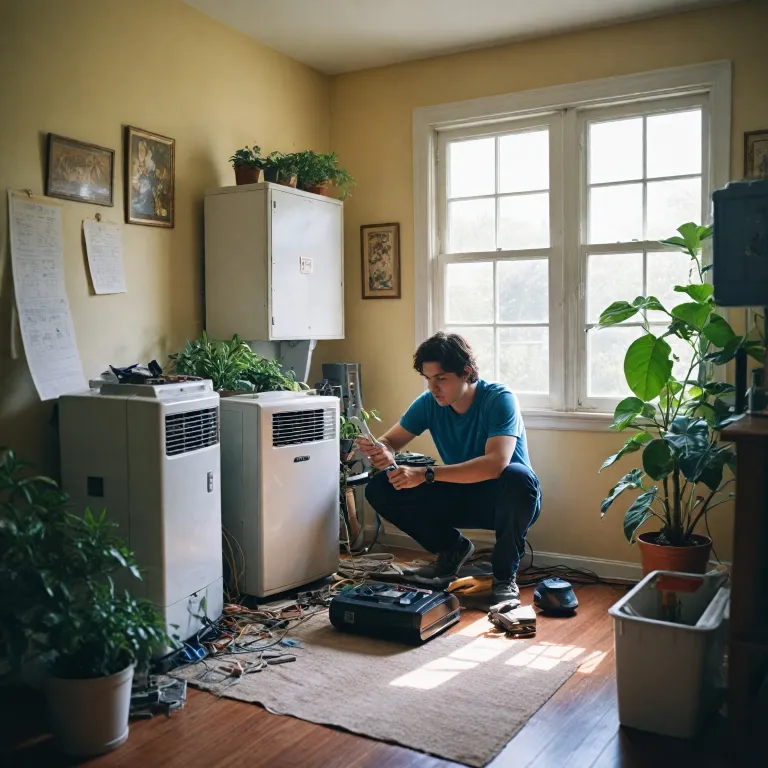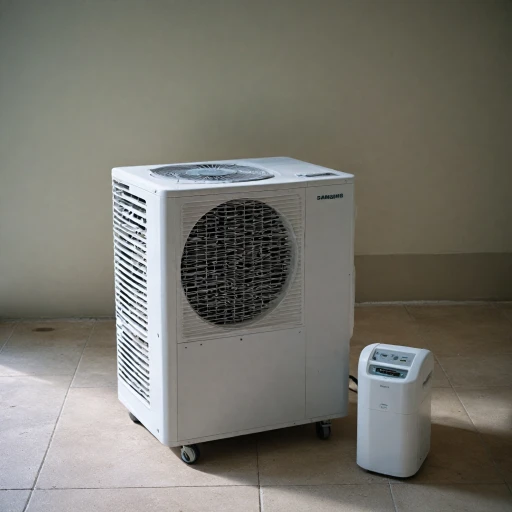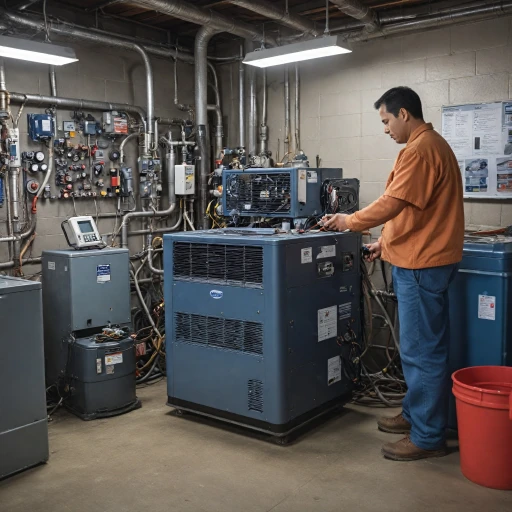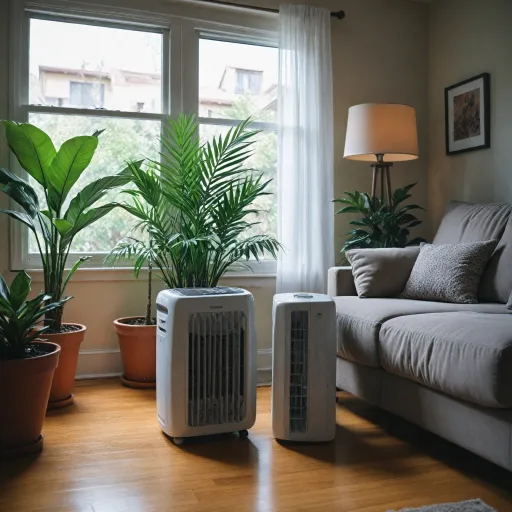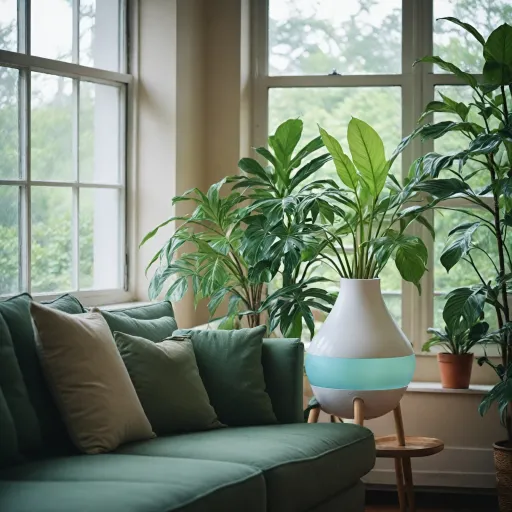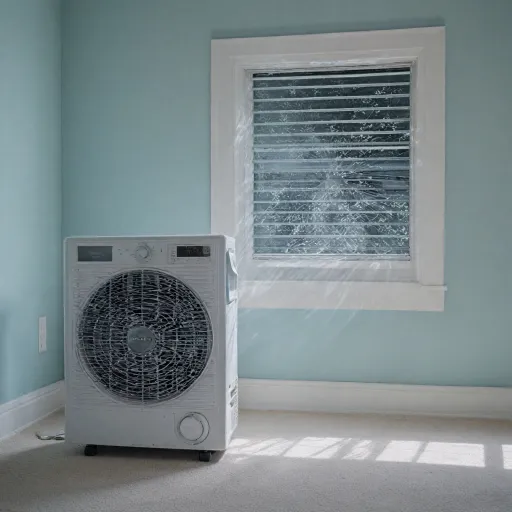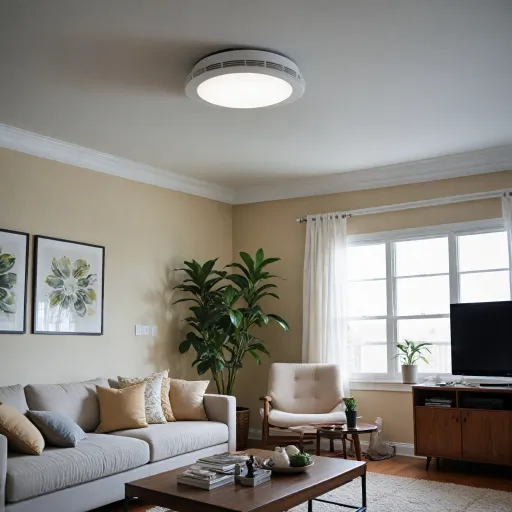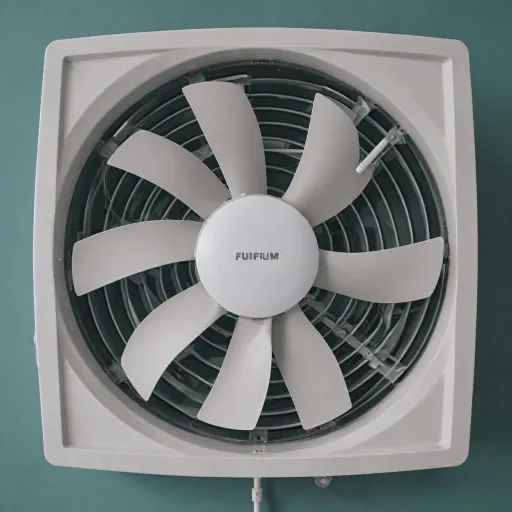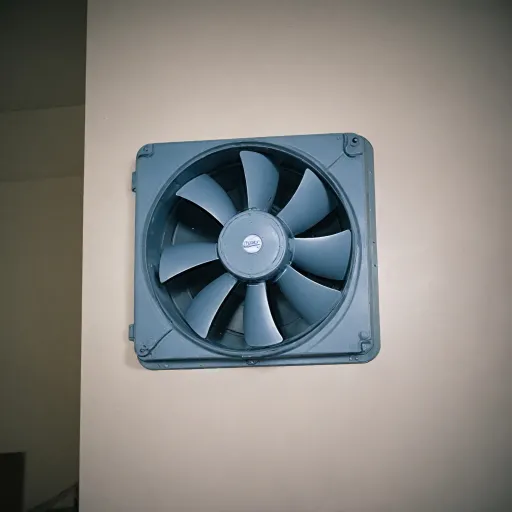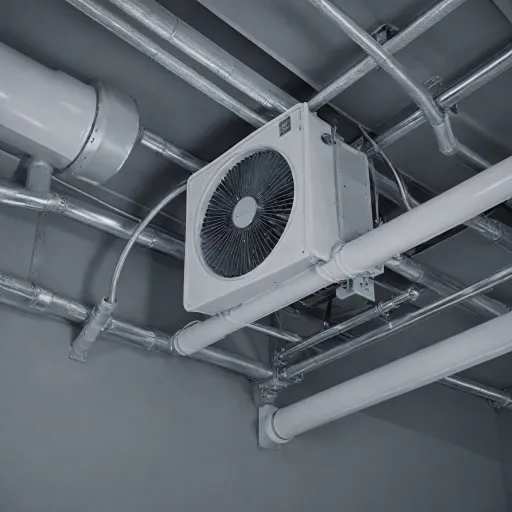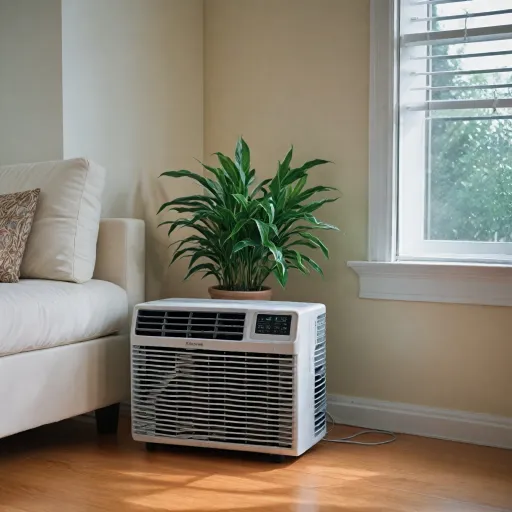
Understanding Common Problems
Identifying Typical Portable Air Conditioner Challenges
Understanding the common issues that arise with a portable air conditioner can significantly aid in efficiently diagnosing and implementing appropriate solutions. Portable units, like any other cooling system, are prone to a set of frequent challenges that could hamper their cooling performance if not addressed.- Refrigerant Leaks: A refrigerant leak is a prevalent issue that could cause your unit to stop blowing cold air, as the cooling process becomes ineffective. It's crucial to ensure the refrigerant level is optimal for maintaining desired space cooling.
- Blocked or Dirty Air Filters: Blocked filters can reduce airflow, leading to inadequate cooling. Regular maintenance of air filters helps in enhancing the unit’s performance by providing cleaner and more efficient air circulation.
- Improper Thermostat Settings: Situations where the thermostat is not correctly set might prevent the air conditioner from cooling efficiently. Verifying the settings can sometimes bring remedy without any complex fixes.
- Power Supply Issues: Insufficient power supply or problems with the power cord can cause problems with the unit cooling properly. Ensuring that the power requirement is met can help avert such issues.
- Dirty Condenser Coils: Accumulation of grime on the coils often leads to the unit not cooling effectively. Cleaning the condenser coils periodically can substantially improve the performance.
Troubleshooting Cooling Issues
Tackling Cooling Challenges with Efficiency
If your portable air conditioner struggles to maintain a pleasant atmosphere, it could be due to several issues. Addressing cooling challenges in portable units requires an understanding of the air conditioning system and its various components.
Firstly, verify the thermostat settings. Incorrect settings prevent the unit from ‘blowing cold’ air and achieving efficient cooling performance. Adjust the temperature to ensure it's set to your preferred level.
The air filter is another crucial component. A clogged air filter restricts airflow, resulting in reduced cool air circulation and compromised performance. Regular cleaning or replacing of the air filter promotes efficient air flow and optimal cooling.
Additionally, inspect the exhaust hose for obstructions or leaks. An obstructed exhaust hose does not allow hot air to escape, thereby hindering the portable unit's ability to cool the space. Ensure it is properly attached and free of damage.
Another consideration is the role of condenser coils. Dirty condenser coils can impede heat dissipation, hindering the conditioning unit's efficiency. Regular maintenance, such as cleaning the coils, enables the unit to perform effectively.
Lastly, low refrigerant levels due to refrigerant leaks can significantly affect the cooling success of your portable air conditioner. A certified technician can diagnose and remedy refrigerant issues, ensuring safety and proper function.
Understanding these common problems is the first step to enhancing the unit’s performance. For detailed insights into maintaining your portable air conditioner, you might want to learn more about the role of an AC condensate pump in portable air conditioners.
Addressing Water Leakage
Effective Solutions to Water Leakage Challenges
Water leakage is a common problem faced by many portable air conditioning systems. It's crucial to address this issue to prevent further damage and to maintain cooling performance within your space. Here are some steps you can follow:
- Check the Drainage System: Ensure the drainage system is functioning properly. Look for any blockages in the hose or drainage pipe, which can cause water to back up and leak from the unit.
- Inspect the Water Collection Tray: Portable units often have a water collection tray. Make sure it's not full and always empty it regularly. Some models have an automatic shut-off switch when the tray is full, preventing further leakage.
- Ensure Proper Unit Leveling: The unit should be level. If it's tilted, water may not flow through the drainage system as intended, causing leaks.
- Examine the Exhaust Hose: Check the exhaust hose for any disconnections or damage that could lead to condensation buildup, which might seep into the room.
- Clean the Air Filter Regularly: A clogged air filter can reduce airflow, causing ice to form on the coils. Once it melts, it can lead to water leakage. Cleaning the air filter regularly will help prevent this problem.
- Reassess Refrigerant Levels: Low refrigerant levels may also contribute to water leakage. If you suspect a refrigerant leak, it is advisable to conduct a thorough check and possibly seek professional assistance.
Remember, regular maintenance is key to keeping your portable air conditioner operating efficiently. These checks can help you circumvent water leakage issues before they escalate, ensuring your unit continues to provide effective cooling in your home.
Dealing with Unusual Noises
Identifying Sources of Unusual Sounds
Experiencing unusual noises from your portable air conditioner can be both annoying and indicative of potential issues. To ensure the optimal performance of your cooling unit, it’s crucial to identify and address these sounds promptly. High-functioning cooling systems should operate quietly, with only a mild hum. Here's what to pay attention to when your air conditioner starts making unfamiliar noises:
- Loose Components: Over time, vibrations might loosen screws or other components within the air conditioning unit. Conduct a simple visual inspection to see if any parts are visibly wobbly and tighten them accordingly.
- Blocked Airflow: A hissing or whistling sound often indicates a blockage in the unit's air filter or exhaust hose. Regular maintenance that includes cleaning the air filter and checking the exhaust hose is crucial to prevent such issues.
- Malfunctioning Fan or Motor: A loud clattering or grinding noise could point to issues with the fan or motor. Be sure your fan blades are unobstructed and the motor is in good condition. Provide sufficient space around the unit to prevent the fan from hitting any surfaces.
- Refrigerant Leaks: Often producing a gurgling sound, refrigerant leaks are a serious issue that can compromise the unit's ability to cool. If you suspect a leak, it is best to call a professional to handle it safely.
Power Supply and Performance Concerns
Ensure the power supply to your portable air conditioner is stable, as an inconsistent power flow might cause irregular noises and affect the system's performance. Check the power cord and connections to ascertain they are secure. Also, ensure the thermostat is correctly set to not overtax the cooling system, which can also lead to peculiar sounds.
Regular Fixes and Maintenance
Consistent upkeep is key to fixes portable unit issues and maintaining a quieter operation. Cleaning dust from the condenser coils and ensuring the refrigerant levels are optimal will significantly enhance your air conditioner's efficiency and reduce the likelihood of unusual noises. Consider scheduling regular check-ups with a professional if the noises persist despite basic troubleshooting.
Maintenance Tips for Longevity
Prolonging the Life of Your Portable Air Conditioner
Maintaining your portable air conditioner is crucial for keeping your unit cool and performing effectively. Regular maintenance not only ensures the air conditioning system functions optimally but also helps avoid potential issues with the cooling system down the line. Here are some essential tips to keep your portable unit in peak condition:- Clean and Replace Air Filters: A primary cause of poor cooling performance is blocked or dirty air filters. Clean the filters regularly to ensure that the unit is blowing cold air efficiently. Depending on the manufacturer's instructions, replace the filters as necessary to avoid clogging.
- Check the Exhaust Hose: The exhaust hose plays a vital role in removing hot air from the space. Ensure the hose is free of obstructions and properly connected to prevent any backflow into the room.
- Inspect the Coils: Condenser coils must be clean and free of debris for the air conditioner to efficiently cool the air. Regularly inspect the coils for any dirt or dust build-up and clean as needed.
- Monitor the Thermostat Settings: Set your thermostat to a comfortable and energy-efficient temperature. Improper settings can lead to excessive power usage and decreased cooling efficiency.
- Perform Routine Energy Checks: Regularly inspect the power supply and power cord to ensure they are intact and functioning correctly. This strategy can prevent unexpected system shutdowns.
When to Call a Professional
Recognizing the Need for Professional Assistance
When it comes to maintaining your portable air conditioner, there are times when a DIY approach might not suffice. It’s vital to know when seeking professional help is necessary to preserve your unit's efficiency and longevity. Here are a few indicators that point towards calling an expert:
- Refrigerant Leaks: If your air conditioner isn't blowing cold air, or if you suspect a refrigerant leak, it’s time to enlist a professional. Handling refrigerants requires expertise due to environmental regulations and potential health risks.
- Persistent Cooling Issues: Should your portable unit fail to maintain a consistently cool environment even after checking the thermostat and power supply, a technician can diagnose and fix underlying cooling performance issues with precision.
- Regular Maintenance of Complex Components: While regular maintenance tasks like cleaning air filters can be DIY friendly, complex components such as condenser coils and the exhaust hose might need a trained professional to ensure the air conditioning system operates efficiently.
- Constant Water Leakage: Consistent water leakage could indicate a significant problem with your drainage system, necessitating expert evaluation to prevent further damage and maintain the health of your portable unit.
- Unusual Noises: If your air conditioner starts making unusual noises that troubleshooting doesn’t resolve, it’s a sign that deeper issues might be affecting the system’s performance, requiring professional intervention.
In conclusion, being proactive about recognizing these issues and asking for professional help when necessary will ensure your portable air conditions your space effectively and prolongs the unit's lifespan.

